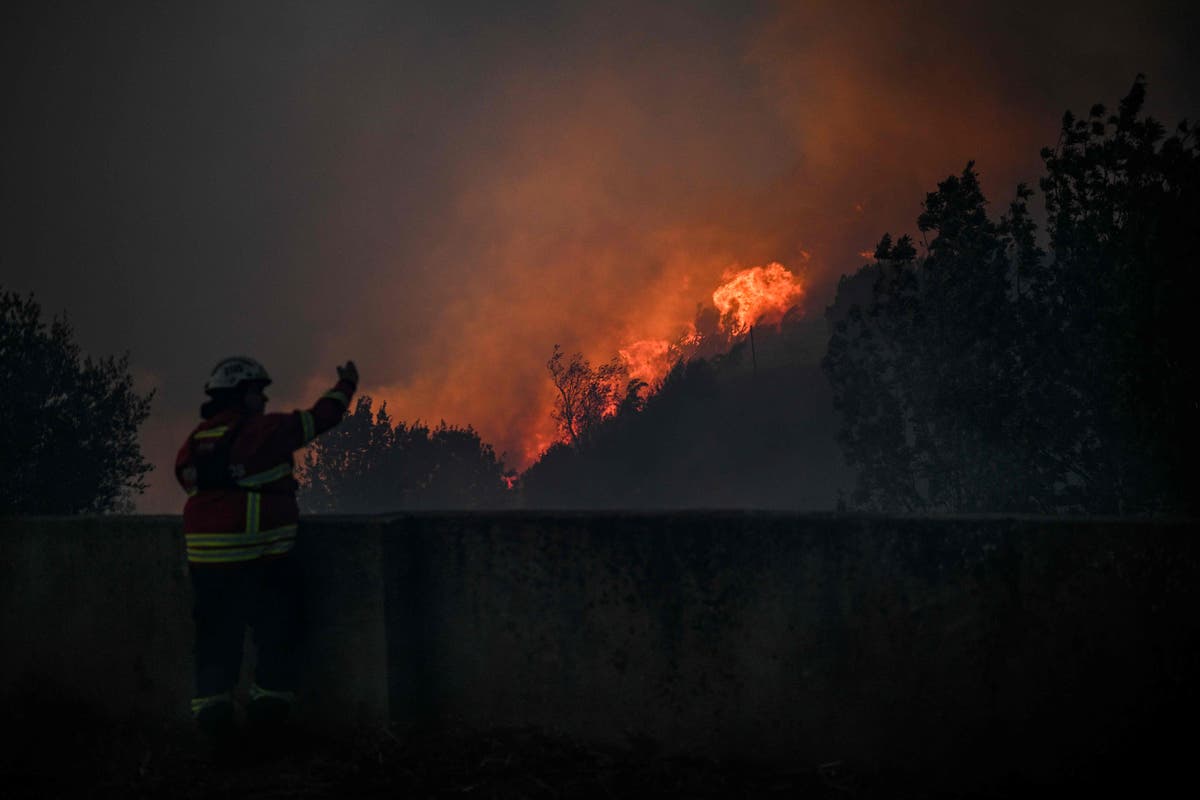This website uses cookies so that we can provide you with the best user experience possible. Cookie information is stored in your browser and performs functions such as recognising you when you return to our website and helping our team to understand which sections of the website you find most interesting and useful.

As wildfires rage across Sicily and Greece, Portugal is the latest Mediterranean country to be hit.
A fire broke out on 26 July near the popular coastal holiday spot of Cascais, just 30km west of capital city Lisbon.
The blaze started at 5pm in part of the Sintra-Cascais natural park, with strong winds fanning the flames and quickening the spread.
Local residents chipped in to help the hundreds of Portuguese firefighters sent to tackle the fires, with some attempting to protect their homes and villages with buckets of water and hosepipes.
“The fear now is that it will get to the houses,” local resident Ines Figueiredo told Reuters.
“We try to help as much as we can with buckets (of water) ... but it’s not worth much.”
Planes were also dispatched to waterbomb the blaze before night fell, alongside more than 600 firefighters.
Winds of of up to 60km/h were the biggest obstacle to putting out the fire, according to the mayor of Cascais, Carlos Carreiras.
A number of local residents have been evacuated as a precaution.
If you’re booked to travel to Portugal, is it still safe to go? And what are your rights if you cancel a holiday? Here’s what we know.
Where is affected by the wildfires?
So far, the fire is contained to Sintra-Cascais natural park; it hasn’t spread as far as the resort of Cascais, popular with holidaymakers for its beaches and vibrant marina.
Some villages within the vicinity of the park have been affected, with nine firefighters and four civilians so far treated for minor injuries and some residents evacuated.
Elsewhere, smaller blazes have been reported in the north and centre of Portugal, one of which is near the second city of Porto.
The highest level of alert for rural fire danger has been issued for several regions, including holidaymakers’ favourite, Faro in the Algarve.
Is it safe to travel to Portugal?
So far, the one major blaze has yet to impact on any areas that tourists are likely to visit. Unlike the Greek island of Rhodes, where a number of holidaymakers have had to be evacuated from the worst-affected areas, Portugal’s wildfires won’t affect the overwhelming majority of visitors.
The UK Foreign Office (FCDO) advice on Portugal has not been updated to reflect the latest fires; its standard advice reads: “Forest fires can occur anywhere in Portugal. Risk of fires is higher when the weather is hot and dry. Fires have become more common due to drought and high temperatures.
“Forest fires are highly dangerous and unpredictable. The Portuguese authorities may evacuate areas and close roads for safety reasons. You should:
- familiarise yourself with local safety and emergency procedures
- follow the advice of the Portuguese authorities
- call the emergency services on 112 if you see a wildfire
“Starting a forest fire, even if it is by accident, is illegal in Portugal.”
No holidays to Portugal appear to have been cancelled by travel companies at this time.
Can I cancel my holiday to Portugal?
Cancelling a holiday to Portugal based on the currently very small risk of fire impacting the trip would very likely lead to you losing any money paid so far.
While most tour operators are offering customers due to travel to fire-affected parts of Rhodes the option of cancelling and rebooking, the same is not true of Portugal, where the blaze is yet to affect tourist areas.
If you’ve booked travel and accommodation separately, rebooking flights in many cases costs as much as buying a whole new ticket.
Cancellation costs incurred also won’t be covered by your travel insurance in the vast majority of cases, as the FCDO has not issued an advisory against all “non-essential” travel to Portugal.



 Africana55 Radio
Africana55 Radio 
